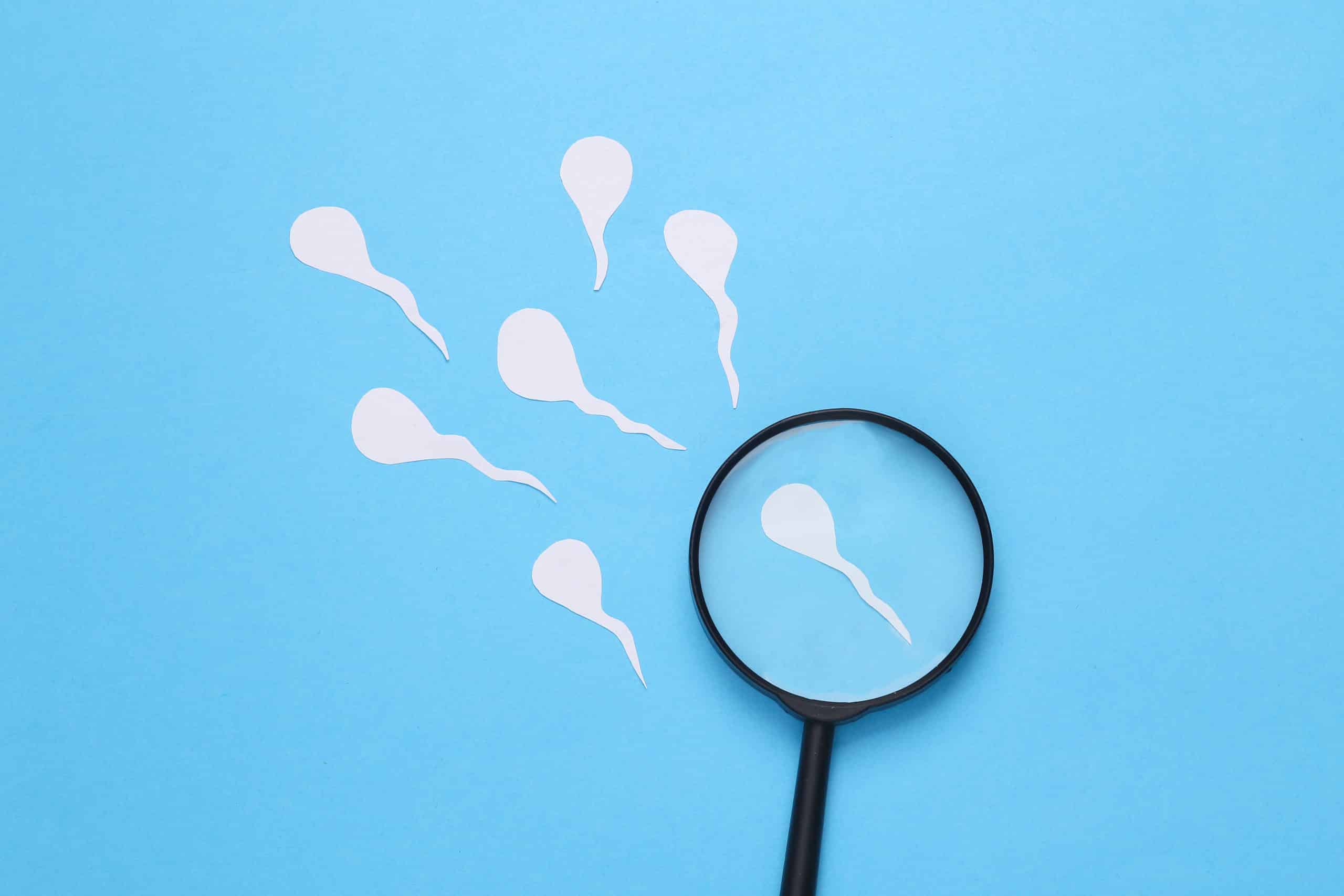They may not have the biological clock pressure, but they are also affected, in the same way, by infertility problems. Moreover, for most of them is the same as for us: they find out they have problems when they try to be parents, but they can’t. Luckily, in many cases these problems can be solved, and the tests to make the diagnosis are usually very fast and simple. But this is an issue not widely spoken and that men often do not even consider.
Therefore, if you are young and have been looking for an unsuccessful pregnancy for almost a year, it’s recommendable for you both to do a fertility study. For women, age, ovule quality, or low ovarian reserve are often the most frequent causes of these problems. But for men, what are these problems related to? Are they easily treated? Well, let’s go in order: the most frequent problems are varicocele (varicose veins of the testicular veins), seminal infections and hormonal problems, but it cannot be generalized, and each case must always be studied individually. In addition, sometimes the origin of infertility is multifactorial, and it is not possible to determine the reason. As for the treatment, it depends on the cause.
In this post, Dr Álvaro Vives, responsible for the Men’s Health Unit of our centre, indicates what are the most frequent causes of male infertility, and what solutions can be given in each case.
1.- A low sperm production or functionality problems
To find it out, it is necessary to analyse a semen sample in the laboratory. This analysis is called seminogram and allows to determine if the amount of sperm cells is adequate or very low (less than 15 million sperm per millilitre of semen or a total sperm count less than 39 million per ejaculation), and if there are mobility problems or morphological alterations. It is usually recommended to do a minimum of 2 seminograms, leaving an interval of 4 weeks between them. In many cases (30%) it is not possible to determine the cause of this problem.
What options are there? Do not be discouraged, since this problem does not always mean that you cannot be a father. Currently there are both medical and surgical treatments that can improve the different parameters and, if this is not possible, there are techniques that allow selecting and separating useful and good quality sperm from the rest and fertilizing the oocyte in the laboratory. For this, sperm microinjection (IVF-ICSI) can be applied, which consists of directly introducing a sperm into the oocyte.
2.- Obstructions or dysfunctions, which hinder the release of sperm.
They can be due to trauma, infections or previous surgeries and can affect both the vas deferens (which facilitate the passage of sperm) and the urethra or ejaculatory duct.
What options are there? If the cause is an infection, it can usually be treated with antibiotics. If it is a structural problem, it may be necessary to operate. If it is not possible to operate, a biopsy can be performed to extract sperm.
3.- Diseases, pharmacological treatments and other health problems
Some health problems, such diabetes, kidney or liver failure, thyroid disorders or cardiovascular disorders can affect fertility. The latter can lead to erection or ejaculation problems (a symptom that, in turn, can also alert us to these problems). Spinal cord injuries can cause ejaculation problems. Chemotherapy and some medications can also have effects on fertility. Another frequent problem is varicocele.
What options are there? Diabetes can be controlled, so if the disease is under medical supervision, it can be avoided. As for cardiovascular disorders, taking care of habits can also improve the situation. If the problem is the consumption of any drug, you should consult a reproduction expert in order to get some alternatives. In spinal cord injuries, surgery can be used. As for varicocele, it should always be operated, but with microsurgery, local anaesthesia and on an outpatient basis.
4.- Hormonal imbalances
They cause insufficiency in the production of testosterone or other hormones, such as gonadotropins (FSH and LH). The decrease in facial or body hair may be an indicative sign of a hormonal imbalance. Doping can also cause such problems.
What options are there? There are hormonal treatments, but a specialist is required and usually a waiting time, which can range between 6 months and 1 year, to take effect.
5.- Hereditary diseases and genetic abnormalities
Klinefelter syndrome, which is characterized by the presence of two X chromosomes and one Y chromosome, can affect the development of the reproductive organs and some male secondary sexual characteristics (body hair, tone of voice, muscle development). Other genetic syndromes associated with infertility are cystic fibrosis, Kallmann syndrome and Kartagener syndrome.
What options are there? In these cases, it is recommended to ask an expert for genetic advice. In our centre we have a specific Unit that offers genetic counselling.
6.- Lifestyle and environmental factors
Exposure to radiation and some chemical compounds of industrial origin (pesticides, herbicides, organic solvents, paint materials, lead or other heavy metals, etc.); drug use, or alcohol abuse and smoking can affect sperm production and also cause erectile dysfunction (in the case of alcohol). Excessive consumption of caffeine, intense sports, being subjected to high temperatures, etc. can also affect male fertility.
What options are there? In general, and unless the effects are already irreversible, a change in habits and a healthy lifestyle can contribute to correct the problems and improve the quality or production of semen. In any case, it will be necessary to carry out a study to evaluate the impact of these factors.
7.- Emotional stress or psychological problems
Emotional stress can affect sperm production and also hinder sexual intercourse. Acute stress can cause a decrease in sperm motility, while chronic stress causes a decrease in sperm count. Depression can cause sexual dysfunctions (erectile dysfunction, delayed or inhibited ejaculation), and decreased sexual desire. On the other hand, some of the treatments given for psychological problems can also cause sexual dysfunctions and, therefore, fertility problems.
What options are there? In these cases, it is convenient to ask for expert professional help to treat the problem at an emotional and pharmacological level, if necessary.
We hope you’ll find all this information helpful! And if you have more questions, do not hesitate to contact us!





